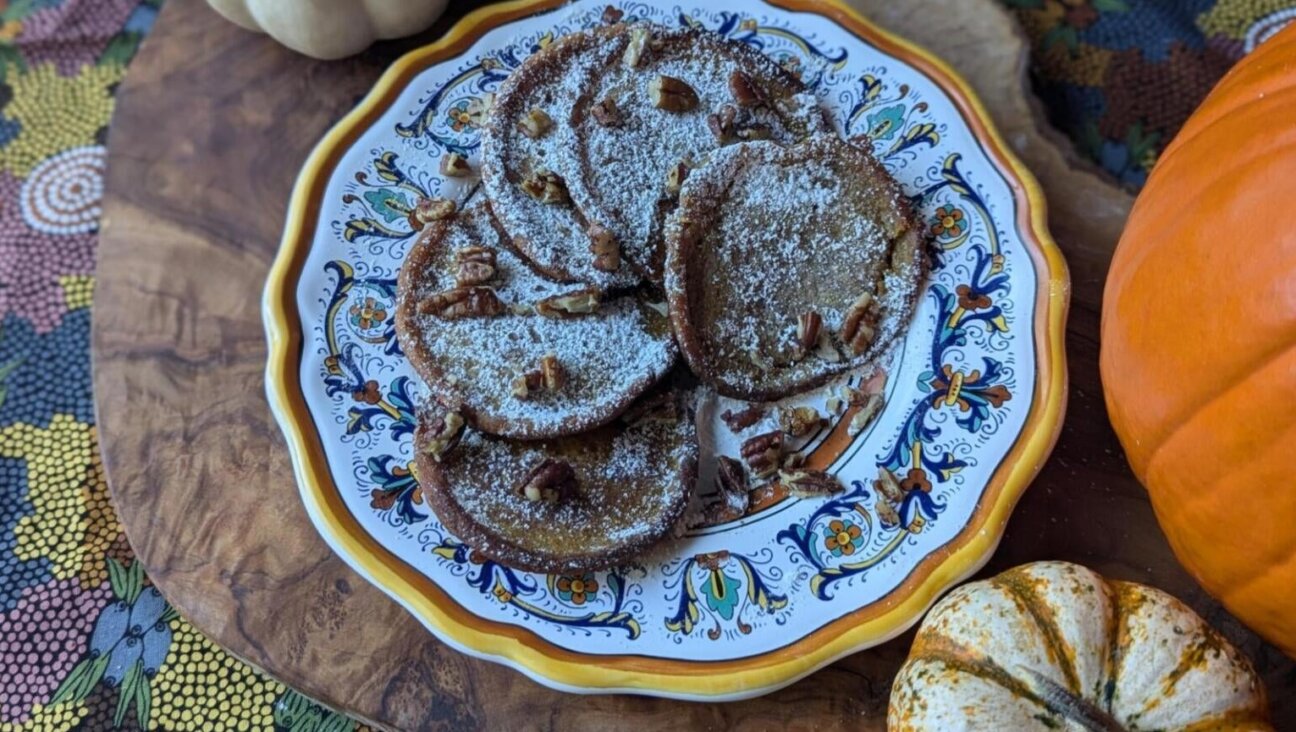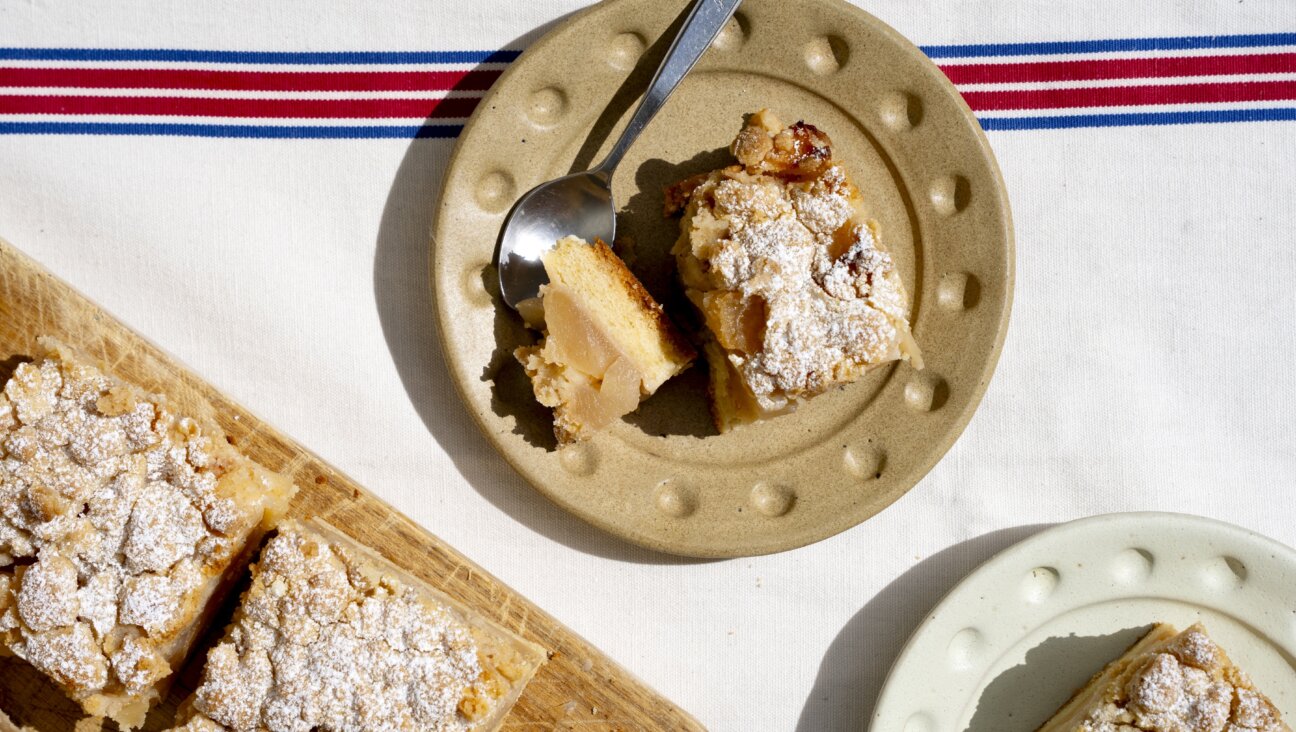Confit turkey legs for a perfect pandemic Thanksgiving

Image by Liza Schoenfein
My sister called from Connecticut a couple of weeks ago, sounding serious.
“This is hard to talk about,” she said, “but we have to discuss Thanksgiving.”
It didn’t take long for us to make the sad but inevitable decision that our families needed to celebrate the holiday separately, as we did at Rosh Hashanah, and as we did at Passover.
And suddenly I was planning Thanksgiving for three.
I started sketching out a menu, wondering how small a turkey I’d be able to find — then realized that even the smallest bird would be two much, since my younger child, Teddy, doesn’t eat meat.
I am and have always been partial to the turkey leg — I look forward to it every year. So this year, why even bother with the rest of the bird?
I decided to make confit, simmering turkey legs slowly in fat and spices, which results in meltingly tender and flavorful meat. I adore duck confit, and have made it before. It’s surprisingly simple and the results are restaurant quality. So yes, my turkey legs would undergo the same treatment.
There was one other Thanksgiving where it was just me and the kids. My marriage had recently ended and I was low. A couple of days before the holiday, I came down with the mother of all colds, so I called my sister and the two friends who regularly joined our celebration, and told them not to come.
I had already gathered ingredients for various Thanksgiving side dishes, but hadn’t done any actual cooking. I’d waited til the last minute to buy a turkey (knowing that there were scads of them at the supermarket) because I didn’t have a lot of room in the fridge.
The morning of Thanksgiving, I gathered the kids.
“Go to Fairway and pick up a small turkey and some sides for the three of us,” I said, handing Rex my debit card.
They were gone for ages. I stood in the kitchen, picturing them wandering the aisles of that sprawling market, delirious in their freedom; distracted by walls of sugar cereal, soda, and candy. Finally, they walked in lugging numerous heavy bags.
“Oh my gosh, what did you get?” I asked.
Proudly, they began to unpack their cargo. There were two quarts of stuffing. There were two quarts of mashed potatoes. There was a pan of cornbread, and I don’t remember what else. This was already enough food to feed a hungry family of 15. And then they hoisted the sack containing the turkey onto the counter, beaming with pride. It was enormous — 23 pounds.
“I said to get a small turkey,” I shrieked.
“This looks small,” my little one said thoughtfully, head cocked, considering the bird.
“How were we supposed to know what small is?!” Rex asked with mock indignation.
Clearly, I should have been more specific. We all laughed until we had tears in our eyes.
The meal was delicious, if a little late in the evening and a little strange in the fact that it was just us three, and I was wearing pajamas. I remember above all that it was supremely relaxed, more so than any Thanksgiving I could remember, and that the kids and I laughed a lot.
Which brings me back to the present. This holiday will also be delicious, and it will also be relaxed, and I already know that at least one of us will be wearing pajama bottoms, because they are Teddy’s COVID-19 uniform.
I’ve always loved the Yiddish expression, “Mann tracht, un gott lacht”; “Man plans, and God laughs.” It feels like the story of my life. My hope for this holiday, aside from a delicious meal, a cure for the coronavirus, and world peace, is that — no matter who is with us in person, no matter what’s on the table — we can laugh too, at the strangeness of it all, aware of surprising gifts that come with the unknown and unplanned, and remembering that we will surely gather with friends and family again.
When we do, we will be all the more thankful.
Liza Schoenfein is a former food editor of the Forward and author of the blog Life, Death & Dinner.Follow her on Instagram @LifeDeathDinner

















